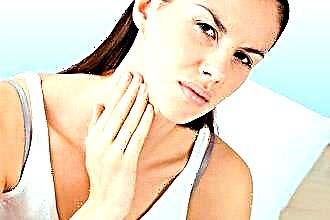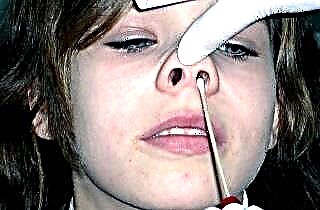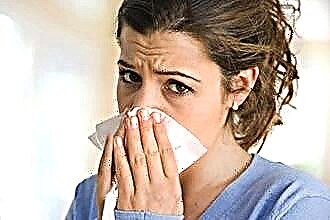What to do if runny nose and sneeze? Hundreds of people ask their doctor this question every day, since a runny nose brings only unpleasant experiences. The symptoms of rhinitis can be very distressing, and it is not known which causes more distress - dryness and burning at the onset of the disease, or compulsive sneezing combined with profuse discharge that appears later. If the nose literally runs, it is difficult for a person to concentrate on everyday tasks, he has to carry a handkerchief with him everywhere. In addition, nasal leakage, or rhinorrhea, is not accompanied by relief of nasal breathing - it can continue for a long time against the background of edema and is only aggravated by sneezing. How to deal with annoying symptoms?
Fundamental rules
 Sneezing and runny nose are the most common symptoms of colds. But even in the same person at different times, they can characterize other diseases - for example, allergic or vasomotor rhinitis. Therefore, when choosing a treatment, you should adhere to the rules:
Sneezing and runny nose are the most common symptoms of colds. But even in the same person at different times, they can characterize other diseases - for example, allergic or vasomotor rhinitis. Therefore, when choosing a treatment, you should adhere to the rules:
- Make sure the diagnosis is correct.
A runny nose and sneezing are not specific, that is, signs inherent in only one specific pathology. They appear in different pathological processes, which requires clarification of the cause and individual selection of therapy. Only a specialist can establish an accurate diagnosis.
- Treat the cause of the common cold if possible.
Cold rhinitis is treated symptomatically, but with allergic rhinitis, the therapy regimen includes various drugs to relieve not only the symptoms, but also the mechanisms of the development of an allergic reaction, the use of which at the onset of the disease greatly facilitates the patient's condition.
- Do not neglect non-medicinal methods.
Treatment of a common cold is not only about suppressing sneezing and reducing the volume of secretions with the help of pharmacological drugs. It is also necessary to pay attention to the parameters of the microclimate, diet.
If your nose is running and sneezing continues, you should not use irritating medications, including home remedies, as they can make your symptoms worse.
You should not treat a runny nose with profuse discharge and sneezing with onion or garlic juice, as well as aloe or Kalanchoe juice. It is better to avoid contact with spices, tobacco smoke, various chemicals (including household chemicals). This is especially important if symptoms come on suddenly, as there is a high likelihood of the patient having an allergy.
A severe runny nose significantly reduces the patient's quality of life, so treatment should be started without delay, without waiting for the condition to worsen. It should be understood that even with active therapy, it will be possible to finally get rid of the signs of rhinitis only after a few days.
Non-drug methods
In most cases, rhinitis is treated at home, according to the recommendations of the attending physician. Non-drug methods are used for all types of rhinitis, designed to create the most comfortable conditions that accelerate recovery and reduce the risk of complications. These include:
- maintaining temperature and humidity at the level of 19-22 ° C and 50-70%, respectively;
- regular ventilation of the room in which the patient is (in his absence);
- systematic wet cleaning of dust, elimination of "dust accumulators" - carpets, soft toys;
- quitting smoking (including passive, next to a smoker), alcoholic beverages;
- refusal from spicy, fried, fatty foods, in case of allergies - a hypoallergenic diet;
- drinking a sufficient daily volume of liquid (water, tea, fruit drink).
With vasomotor rhinitis, it is advisable to avoid sudden changes in temperature and humidity, as this can provoke an exacerbation. A patient who suffers from a runny nose should get enough sleep, if possible, avoid physical exertion, emotional upheaval. If a runny nose is a symptom of a cold, then it is accompanied by weakness, general intoxication, fever - in this state, prolonged rest is indicated, while the body temperature rises - bed rest.
Irrigation therapy
Irrigation therapy is understood as methods aimed at cleansing the nasal cavity from pathological secretions. A runny nose sometimes lasts a long time - while the use of pharmacological drugs is limited due to the adverse effects on the nasal mucosa and the body as a whole. Nasal rinsing can act as a safe alternative to vasoconstrictor drops because it can:
- facilitate nasal breathing;
- eliminate accumulated discharge in the nose, crusts;
- moisturize the nasal mucosa;
- mechanically remove allergens, infectious agents, irritants.
Treatment with nasal lavage helps to cope with both acute and chronic rhinitis of various etiologies. The method is indicated, including for allergic rhinitis. In addition, cleansing the nose of mucus is a necessary event before the administration of drugs (for example, topical glucocorticosteroids, antibiotics, antiseptics). The advantage of rinsing is that it can be carried out at home. You need to repeat the procedure several times a day.
 The best remedy for rinsing if sneezing is flowing from the nose and annoying is 0.9% sodium chloride solution - physiological saline.
The best remedy for rinsing if sneezing is flowing from the nose and annoying is 0.9% sodium chloride solution - physiological saline.
Physiological solution can be found in any pharmacy, it is already prepared for use, sterile, it is offered in different volumes (100, 200 ml and more). The product does not irritate the mucous membrane, but at the same time moisturizes and effectively cleanses it. Currently, preparations based on sea water are also quite popular - for example, in the form of sprays, nasal drops (Aqua Maris, Humer).
Pharmacological preparations
How are sneezing and runny nose treated? The goal of therapy is:
- Relief of nasal breathing.
- Elimination of edema, dryness, reduction in the amount of discharge.
- Restoration of the damaged mucous membrane.
Colds, ARVI
Treatment of a common cold for colds and acute respiratory viral infections includes vasoconstrictor drops, sprays (decongestants) that improve nasal breathing by eliminating edema, reducing the activity of rhinorrhea. Decongestants (Xylometazoline) are injected into the nasal cavity several times a day, they are used no longer than 5 days. Medicines based on eucalyptus, mint, pine oil (Pinosol) have an anti-inflammatory and antiseptic effect.
With a viral rhinitis at the onset of the disease, drugs containing interferon (Grippferon) may be useful. They are both antiviral agents and immunomodulators and help fight inflammation. However, combined use with decongestants is unacceptable, confidence in the viral etiology of the disease is necessary (a cold is often caused by bacteria that constantly inhabit the nasopharyngeal cavity and are activated during hypothermia).
Allergic rhinitis

In the treatment of the disease, the following are used:
- decongestants (Otrivin);
- topical glucocorticosteroids (Nazonex);
- antihistamines, cromones (Cetrin, Ketotifen);
- intranasal anticholinergics (ipratropium bromide);
- antagonists of leukotriene receptors (Montelukast).
To quickly eliminate a runny nose and sneezing, the main symptoms of allergic rhinitis, decongestants and antihistamines are used. The rest of the drugs are intended for long-term therapy, prevention of exacerbations.
It is worth knowing that decongestants do not treat inflammation in case of infection or allergies, they only temporarily eliminate rhinorrhea and belong to symptomatic drugs.
Vasomotor rhinitis
Intranasal anticholinergics, topical glucocorticosteroids help to remove sneezing and runny nose in this disease. An antihistamine for topical use, Azelastine, can also be used.
It is necessary to treat a runny nose under the supervision of a doctor, since nasal discharge in combination with sneezing is often caused not by a cold, but by an allergic rhinitis. Whatever the cause of the onset of symptoms, they cannot be ignored, otherwise complications may develop. A general practitioner or an otolaryngologist (ENT doctor) can help with rhinorrhea and sneezing.



